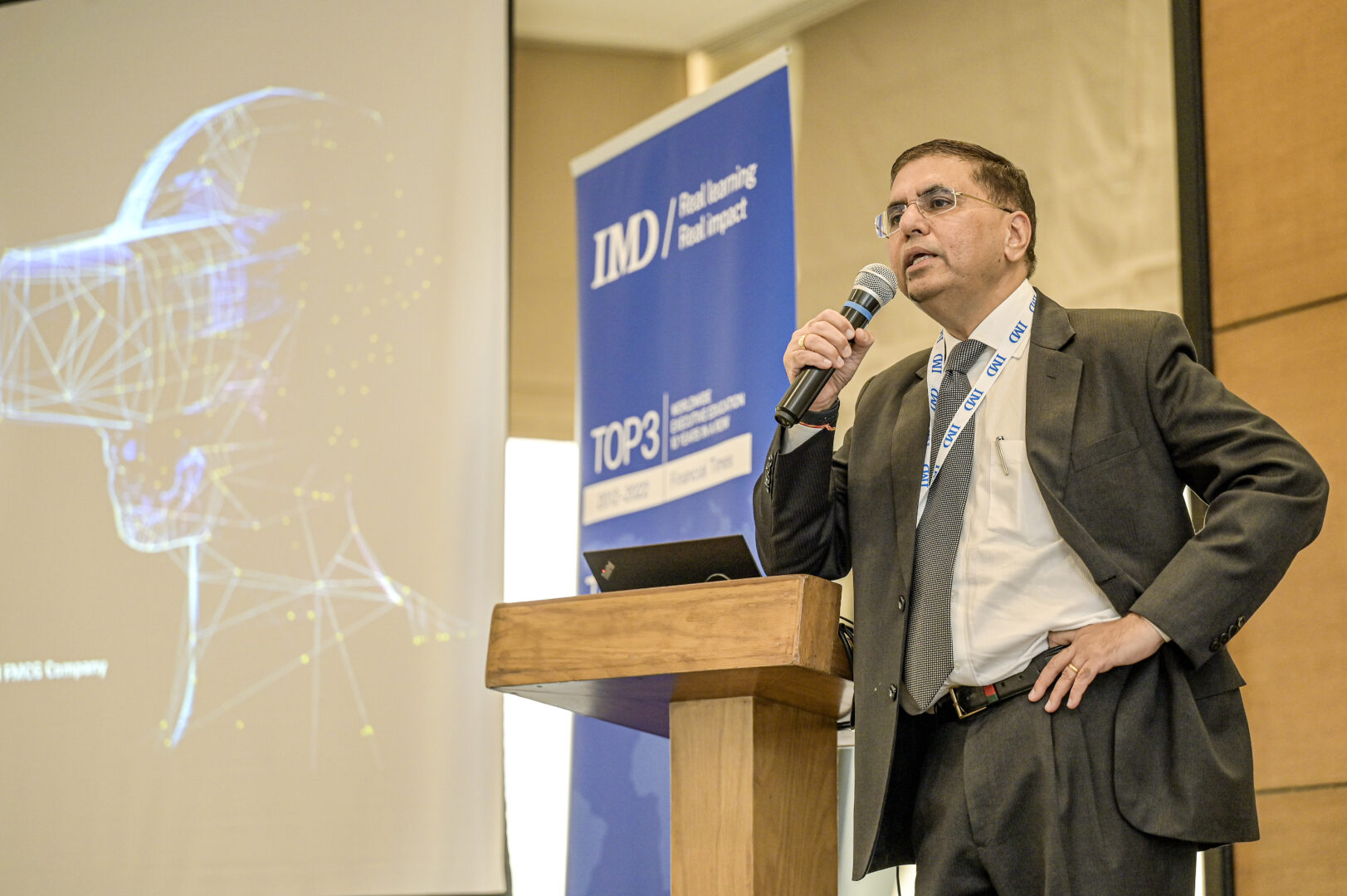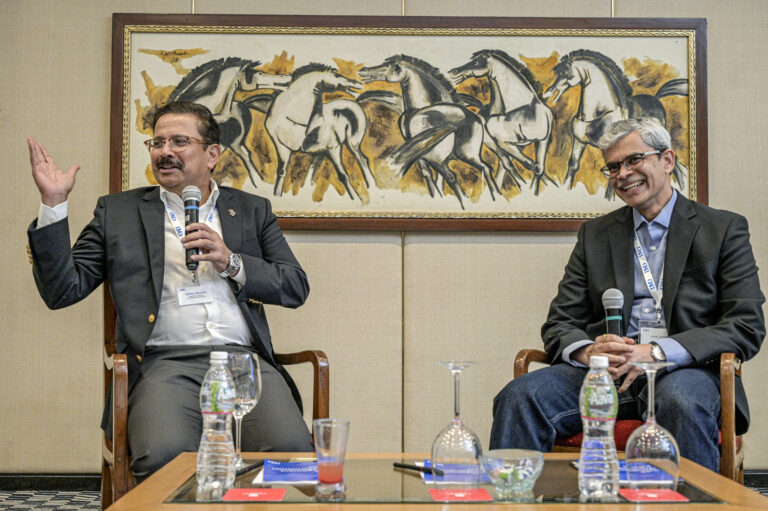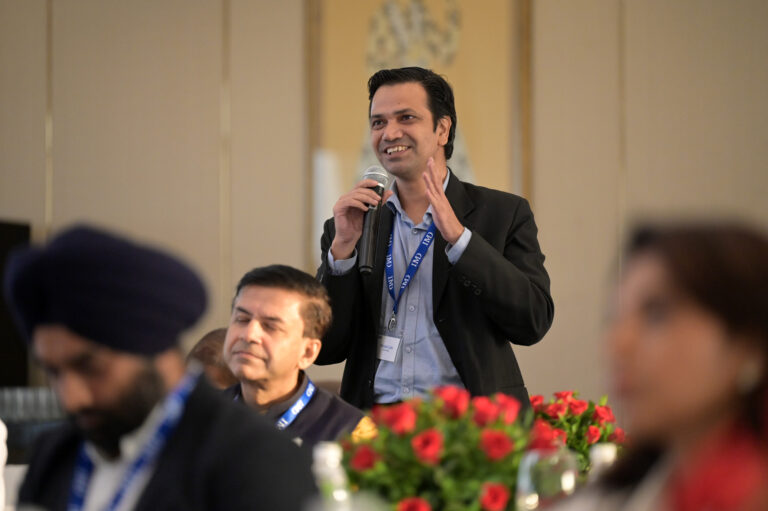
To thrive, companies in India must embrace digital transformation supported by massive talent management transformation. The former enables organizations to leverage data, artificial intelligence, and machine learning to drive efficiency, enhance customer experience, and unlock new revenue streams. The latter ensures that top leaders across India can take advantage of the benefits afforded by digital transformation and translate them into real profits.
Leverage data to scale transformation
“India as a nation is treating data as a national asset, which is accelerating digitalization.” – Sanjiv Mehta, CEO and Managing Director at Hindustan Unilever Limited (HUL).
During his keynote at the inaugural India Management Transformation Forum (IMTF) held in Mumbai on 2 June, Mehta explained to the audience of Indian CXOs how the journey of transforming HUL began with an understanding how to bring together the massive amount of disparate data the corporation generated. Instead of maintaining a linear value chain that cuts across planning, sourcing, making, delivering, and marketing – typical of conventional FMCG companies – HUL created an interlinked ecosystem of consumers, customers, and operations. This ecosystem is enabled by data, technology, and analytics at its core, powering transformations across planning and production to distribution and fulfillment.

Amit Joshi, Professor of AI, Analytics, and Marketing Strategy at IMD, noted that HUL had scaled its digital transformation journey to a Federation of Expertise model, effectively achieving what few legacy organizations manage. “There are three phases of scaling AI and analytics,” he said. “Most companies start in little Islands of Experimentation (IoE) before coming together around a corporate Center of Excellence (CoE). Only a small number then move to a sophisticated federation of expertise (FoE) model built on a centralized knowledge base, systems, processes, and tools, and on decentralized embedded capabilities.”
Given that scaling up to and managing the FoE model is resource-intensive, Joshi laid out five principles of scaling:
- Encourage cross-functional knowledge sharing so the team building the solution understands the nuances of the market it will be used in, and the teams using the solution understand the complexity of building the technology.
- Deliver quick wins with demonstrable value to get commitment and resources from key stakeholders for larger digital transformation projects.
- Pick the right projects by evaluating their feasibility, business value, and long-term impact.
- Have the right incentives for the teams building and using the products.
- Close the feedback loop by learning from both successes and failures.
Nurture ambidextrous leadership to drive digital transformation
Key to successful digital transformations are leaders who can balance the dual remits to perform and transform simultaneously, explained Misiek Piskorski, Dean of IMD Asia and Oceania and Professor of Digital Strategy, Analytics, and Innovation. “You need leaders who can leverage digital transformation within existing operational strategies to deliver immediate results, and also be able to adapt and experiment with them to create completely different business models.”
During a Q&A panel with Joshi at the IMTF, Venky Mysore, Managing Director of the Indian Premier League’s Kolkata Knight Riders (KKR), described his personal transformation journey when he first entered the Indian cricket industry after a career in fintech and insurance.
“I had to quickly reconcile how to grow and scale what was effectively a two-month product into a year-round business,” Mysore said. The rules and the nature of the industry meant that the business had a natural shelf life, which made it difficult to scale and create value. However, within a few years of taking over the team, Mysore had successfully expanded the business to create a franchise that he successfully steered into new markets including the US and UAE, while managing the day-to-day operations of the KKR.

And it is exactly this ambidexterity that drives successful digital transformations in any business. While Piskorski acknowledges the rarity of the skill and the targeted process needed to develop the skill in leaders, his research shows that such development can happen. To achieve this, he laid out what organizations can do to nurture ambidexterity in their leadership:
First, organizations should continuously expose leaders to new and different opportunities. Second, organizations should give their leaders stretch projects in areas different to their expertise to help them develop new skills and increase their dexterity. Finally, and just as importantly, organizations need to continuously prioritize the executive education of their leaders.
The India Management Transformation Forum is the first of a series of events created to support the development of leaders who will drive critical transformations in their organizations and contribute to society. Powered by IMD research and faculty, the Forum is an opportunity for CXOs to share best-in-class practices and create new transformation ecosystems.
To be updated about similar events, visit the IMTF page or subscribe to our monthly newsletter.



